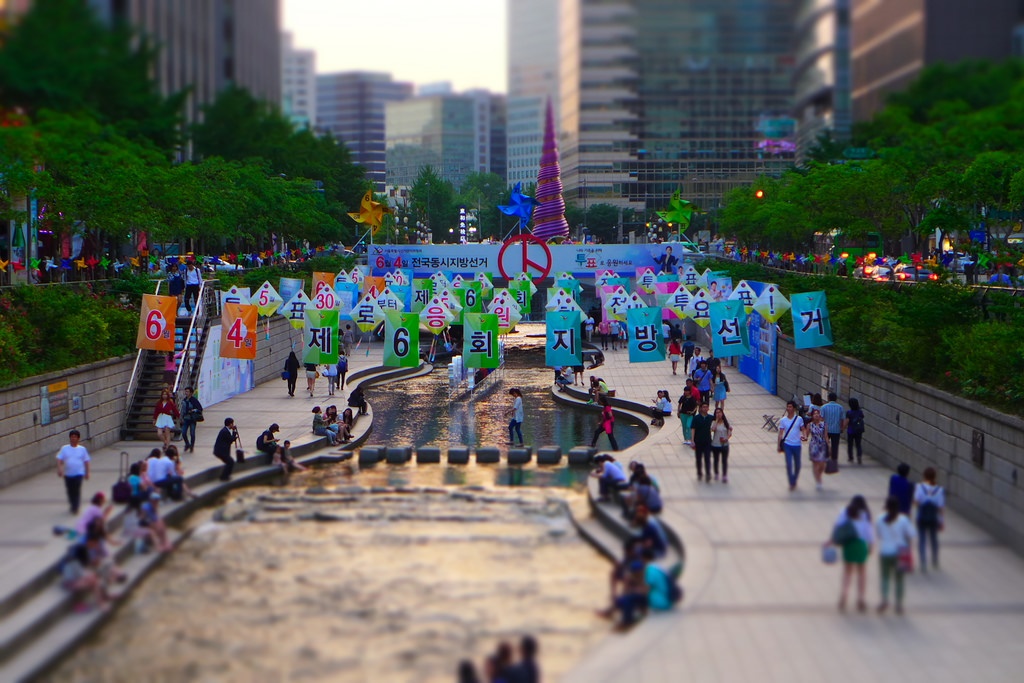The Peninsula
What Would an American Politician Do? South Korea’s Parliamentary Election Clamps Down on Negative Campaigning

By Jenna Gibson
On April 13, South Koreans will head to the polls to choose who will fill the 300 seats that make up their parliament, the National Assembly. Like the elections currently taking place here in the United States, the campaign is focused on important issues such as ramping up economic growth and addressing crucial security concerns. However, in many ways the Korean election could not be more different than the one currently underway across the United States.
From the perspective of the United States, where the 2016 election began more than a year before the actual vote, the timeline for Korea’s elections is shockingly short. Candidates are only allowed to start campaigning 13 days before Election Day. This means the last week leading up to April 13 has been a flurry of rallies, commercials, and synchronized dance routines.
Another noticeable difference is the overall tone of the campaign – especially stark in comparison with this year’s American Presidential Election. Korean election laws strictly prohibit anyone, officially involved in a campaign or not, from making negative or defamatory comments about the candidates running for office or their families.
According to the law, violations include “presenting distorted facts or true information that violate their [candidates or families] privacy, such as presenting candidates and their relatives’ backgrounds, family relationships, social status, occupations, work experiences, wealth, actions, affiliation, by whom they are supported, etc.” The only exception is for demonstrably true facts that are directly related to the public interest. Fines for breaking this law can run up to 3 years in jail or a fine of 5 million won (about $4,300).
So far, 133 of the 944 candidates running for seats have been booked for potential violations of these election laws, according to the Korea Herald. Of those, 46 percent were accused of negative campaigning, 23 percent of bribery, and 7 percent of spreading lies about their rivals. Nearly 1,000 total violations are being investigated for election-relation violations, up from 726 during the 2012 parliamentary election.
To head off any potential issues, some news outlets have taken down their comment sections until after the election. A notice posted on The Korea Times site reads, “The comment box under articles on The Korea Times website will be unavailable until the general election on April 13. The suspension is to comply with the Election Law, under which news organizations are obligated to allow readers to leave comments on a verified real-name basis or temporarily halt the service before nationwide elections to prevent online smear campaigns. The Korea Times has opted for the latter, for technical reasons.”
This hasn’t stopped some candidates from using controversial ads to support their campaign. One candidate posted a photo of herself dressed as a soldier with the caption “The sniper to take down Park Geun-hye: It’s Kwon Eun-hee,” in a parody of the popular Korean military drama Descendants of the Sun. In another example, a coalition of progressive civic groups posted a survey on their website to identify the “10 Worst Candidates” in the upcoming election. According to the Korea Herald, “The National Election Commission is currently studying whether the list and the anti-campaign constitute a breach of the public official election act clause, which forbids the announcement of unauthorized public polls ahead of the election.”
With just 312 hours to campaign and 3.7 candidates for every open seat, this year’s election is certainly one to watch.
Jenna Gibson is the Director of Communications at the Korea Economic Institute of America. The views expressed here are the author’s alone.
Photo from travel oriented’s photostream on flickr Creative Commons.
